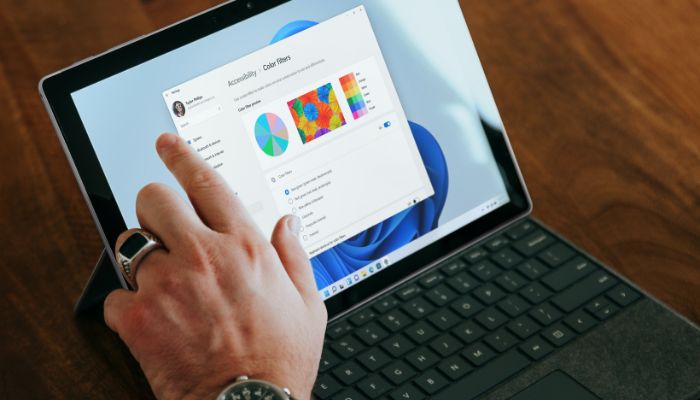
Bewildered by background checks? You’re not alone. If you’ve ever been ticketed, you might wonder, ‘Do traffic tickets show up on background checks?’
Yes, traffic tickets can show up on background checks, especially if they are related to more serious violations or if they have led to a warrant or unpaid fines. However, minor traffic tickets are less likely to appear on most standard background checks.
Don’t fret, we’ve got you covered. Delve into the details of different traffic violations, understand their impact, and learn how to address them.
Let’s analyze this from an employer’s perspective too. Knowledge is power, so let’s get you empowered.
Table of contents
Understanding Background Checks
While you might assume that background checks only delve into serious criminal history, they can actually reveal much more, including, in certain cases, traffic tickets. With a background check, employers aren’t only looking at criminal records but also your driving record.
Traffic violations, no matter how minor, can pop up in these checks. This is especially true during employment background checks for jobs that involve operating vehicles.
Even unpaid parking tickets can surface, potentially painting an unfavorable image of your responsibility level. So, don’t underestimate the power of a thorough background check. It’s not just a criminal background check; it’s a comprehensive review of your past actions, including any hiccups in your driving history.
Different Types of Traffic Tickets
Understanding the variety of traffic tickets you might encounter is crucial, as not all infractions carry the same weight on background checks. When discussing different types of traffic tickets, they’re broadly categorized into minor traffic violations and major violations.
Minor traffic violations, such as speeding or running a red light, are typically considered traffic infractions. They rarely appear on background checks, but that can vary based on individual traffic violation policies.
Major violations, on the other hand, involve serious offenses like reckless driving or DUIs. These often carry severe penalties and are more likely to show up on a background check.
Understanding these distinctions can help you make sense of how traffic tickets might impact your background checks.
Do Traffic Tickets Show Up on Criminal Background Checks?

When it comes to understanding the implications of traffic tickets, it’s essential to recognize the difference between various types of violations and how they might impact one’s record. Not all traffic violations are treated equally, and their representation on background checks can vary.
Distinction between traffic infractions, misdemeanors, and felonies
Traffic violations can generally be categorized into three main types: traffic infractions, misdemeanors, and felonies.
- Traffic Infractions: These are minor violations, often referred to as non-moving violations. Examples include parking tickets or going slightly over the speed limits. Typically, infractions won’t appear on a standard background check. However, they might show up on specialized driving checks, especially if they accumulate over a period of time.
- Misdemeanors: These are more severe than infractions but less serious than felonies. Speeding tickets that record speeds significantly over the allowed miles per hour or drunk driving without causing harm might fall into this category. Misdemeanors can show up on criminal background checks, especially if they result in criminal citations or criminal charges. However, it’s important to note that a dismissed misdemeanor background check may not reflect these charges, depending on the policies of the specific state or jurisdiction.
- Felonies: The most severe traffic violations, such as vehicular homicide or driving under the influence of alcohol leading to severe injury or death, are categorized as felonies. These will almost always appear on a criminal background check and can have long-lasting consequences, affecting future job opportunities and insurance rates.
Circumstances under which a traffic ticket might appear on a criminal background check
- Unpaid Tickets and Outstanding Warrants: Unpaid tickets can escalate into a significant legal issue. If a ticket goes unpaid for an extended amount of time, it can result in a traffic warrant or even an arrest warrant. Potential employers conducting a thorough background check might come across these warrants, which can be a red flag for employers.
- Driving Under the Influence: Drunk driving is a serious offense that can lead to criminal charges. If convicted, this will undoubtedly appear on a background check. The severity, such as the blood alcohol content at the time of arrest, can determine whether it’s a misdemeanor or felony.
- Severe Violations: Actions like careless driving leading to harm, hit and runs, or vehicular homicide are grave offenses. These will not only result in the suspension of driving privileges but will also prominently feature in criminal background checks.
- Public Records: Some states treat certain traffic violations as public records, making them accessible during background checks. Potential employers or insurance companies might access these records to gauge the responsibility of a driver or potential employee.
- Employment Considerations: For jobs that require driving, such as delivery or transportation roles, employer in advance might conduct specialized driving record background checks. Even minor violations can be a concern in these scenarios, potentially affecting the employment process.
How Serious Traffic Offenses Impact Checks?

If you’ve committed a serious traffic offense, it’s important to know that these violations can significantly impact your background checks. These offenses often show up in a driving record check and can be visible to background checks employers conduct.
Serious traffic offenses are typically considered as criminal traffic offenses, which include:
- DUI/DWI charges
- Reckless driving
- Hit and run incidents
These offenses not only tarnish your driving record but can also lead to criminal records. This can pose a significant obstacle when pursuing opportunities that involve a thorough background check. Understanding the severity of these offenses is crucial to avoiding them and maintaining clean records.
Now, let’s dive into the employer’s perspective on traffic violations.
Implications for Employment

The impact of traffic tickets on one’s employment prospects can be significant, especially for roles that necessitate driving or uphold strict background check criteria. Understanding these implications is crucial for both job seekers and employers.
Jobs that require a clean driving record
Many professions demand a pristine driving record, emphasizing the importance of responsible driving habits. Some of these jobs include:
- Delivery Drivers: Whether it’s for food, packages, or other goods, delivery drivers are expected to be responsible drivers. Insurance companies often set the insurance premiums based on the driving record, and any blemishes can increase the insurance premium for the employer.
- Commercial Drivers: Operating larger vehicles like trucks or buses requires a higher level of skill and responsibility. Any driving infractions can be a cause for concern for potential employers.
- Rideshare Drivers: Companies like Uber or Lyft have set guidelines on the acceptable number of violations or driving infractions a driver can have within a specific period of time.
- Sales Representatives: Those who travel frequently for work, visiting clients or potential customers, need to maintain a valid driver record, ensuring they can reliably and safely reach their destinations.
How employers might view traffic tickets
- Minor Violations: A single non-moving violation or minor speeding ticket might be overlooked by many employers, especially if the job doesn’t involve driving. However, a pattern of repeated minor violations can indicate carelessness.
- Major Offenses: Criminal driving offenses, such as DUIs or vehicular homicide, are red flags. They not only indicate a disregard for the law but can also be a potential liability for the employer, especially if the job involves operating a motor vehicle.
- Insurance Implications: Employers often consider the potential increase in insurance rates when hiring for roles that involve driving. Insurance agents might provide higher quotes for employees with tarnished driving records, impacting the company’s bottom line.
Additionally, in today’s digital age, some employers use comprehensive checks where activity, which can further influence their decision-making process.
The right of employees and applicants to know what’s in their background check.
Every individual has the right to know the contents of their background check, especially if it affects their job opportunity:
- Employment Adjudication Process: Before taking adverse action based on the background check, employers are typically required to provide a copy of the report and a reasonable amount of time for the applicant to dispute any inaccuracies.
- Complete Employment History: Applicants have the right to ensure that their employment history and other details are accurately represented.
- Flag for Employers: If an employer decides not to hire based on the background check, they must inform the applicant, providing them with the report’s source and the reason for the decision.
Ways to Address Traffic Tickets on Checks
When you’re gearing up for a background check, you might be unsure how to handle any traffic tickets that could show up. It’s essential to be proactive. Here are some ways to address traffic tickets:
- Understand the Impact of Traffic Tickets: Not all traffic tickets will negatively impact background checks. Violations of traffic laws like speeding or parking tickets usually don’t reflect poorly. However, serious offenses like DUIs could be a problem.
- Maintain Clean Driving Records: Regularly check your record. Promptly pay off fines, attend traffic school, or work with a traffic ticket attorney if necessary.
- Be Honest: If asked, be truthful about your record. Honesty is often appreciated and may mitigate the potential impact of any violations.
Taking these steps can help manage any traffic tickets that might appear on background checks.
Conclusion
So, while minor traffic tickets may not appear on background checks, serious violations certainly do. As an employer, you might overlook minor infractions, but felony offenses could raise red flags.
Remember, honesty is paramount when addressing traffic tickets. The juxtaposition? Seemingly insignificant traffic tickets can cast a large shadow on your professional image.
So, stay safe on the road, because it’s not just your driving record that could be affected, but your career prospects too.
FAQs (People Also Ask)
Do parking tickets show up on background checks?
Parking tickets, which are considered non-moving violations, typically do not appear on criminal background checks. However, if left unpaid, they can escalate into larger issues, potentially leading to traffic warrant situations which might be flagged in more extensive checks.
How long do DUIs stay on your background check?
DUIs, or driving under the influence offenses, are serious criminal convictions. The duration they remain on a background check varies by state and the nature of the offense. Generally, they can stay on a record for several years, impacting future employment opportunities and other aspects of life.
Can you get a job with a traffic warrant?
A traffic warrant issued due to unpaid tickets or missed appearances for traffic violations can be a red flag for potential employers, especially for roles that involve driving. While it might not disqualify a candidate outright, it can raise concerns about responsibility and reliability.
Does a speeding ticket affect your insurance?
Yes, speeding tickets can influence insurance rates. Insurance companies view speeding as a risk factor, and having a ticket on your record might lead to an increase in your insurance premium. The impact varies based on the severity of the speeding offense and the insurance provider’s policies.